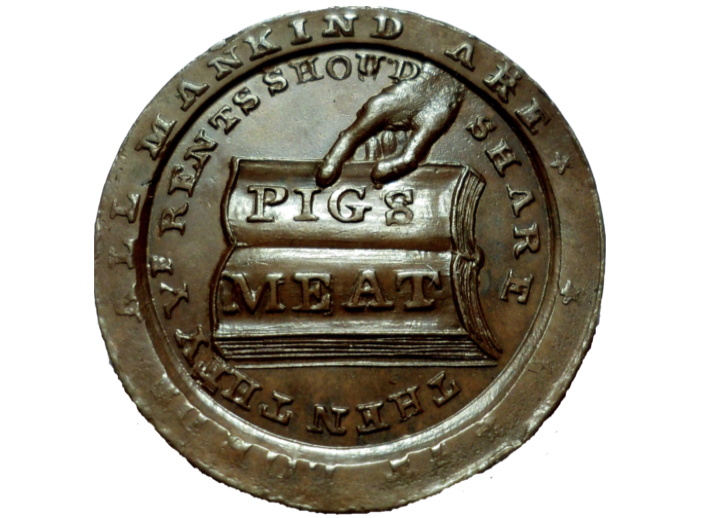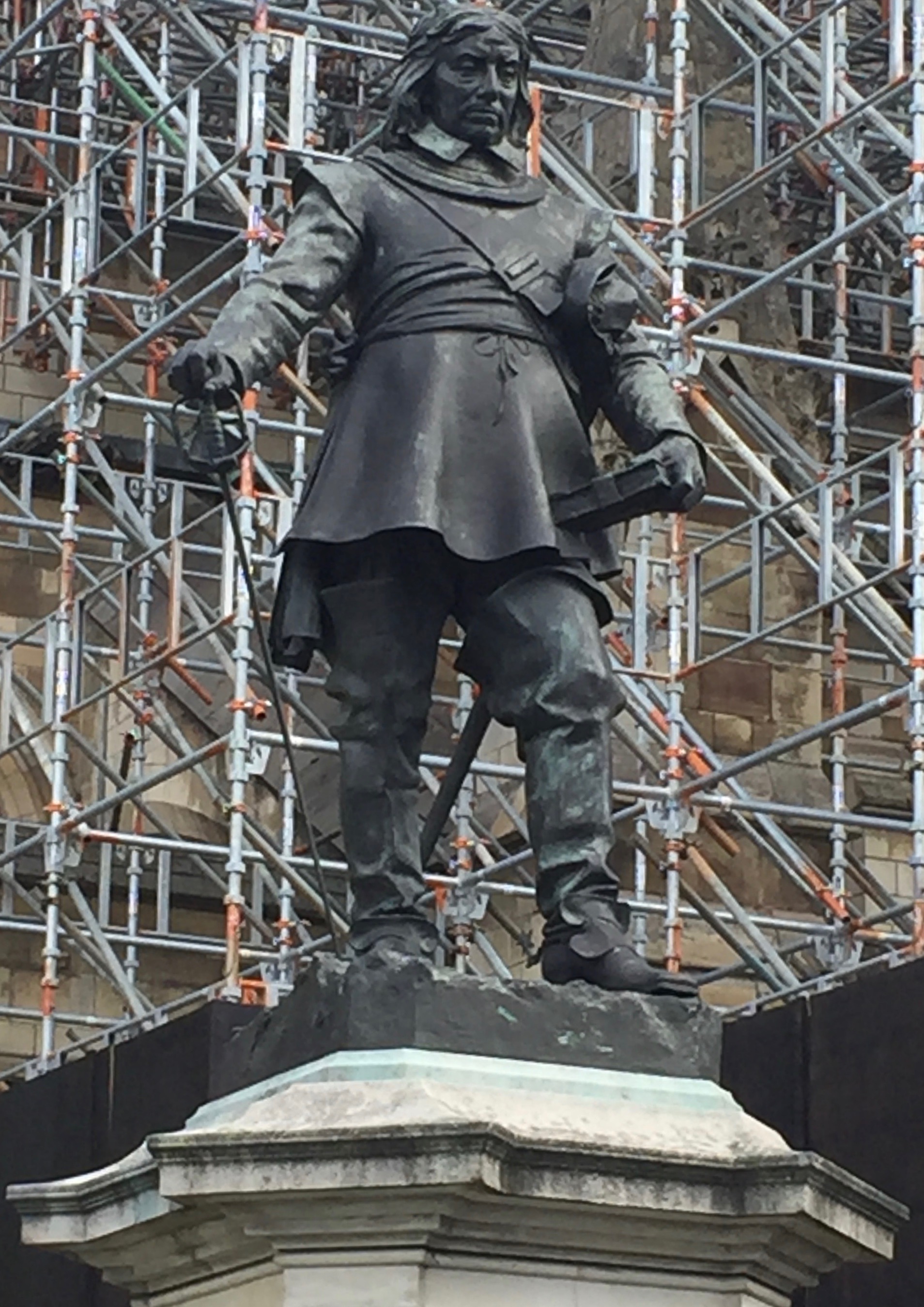We are very conscious today of living in a global world. Thanks to economic, cultural, and military ties our daily lives are deeply entangled with those of others in distant places, most of whom we will never meet, whether individuals like key politicians, groups such as workers in various industries, or international corporations. It is perhaps not surprising, then, that the notion of Entangled History is currently popular. Entangled History adopts a trans-cultural perspective and explores the interconnectedness of societies. It starts from the assumption that nations, empires, and civilisations were not formed independently but rather through a process of interaction and global circulation. The revolutions of the late eighteenth century are particularly amenable to this approach. While the French Revolution took place within an existing nation state, its origins, the ideas on which it was grounded, the unfolding of events, and its legacy were all impacted by cross-cultural relationships and exchange. Other revolutions of the period - including the American Revolution - were even more deeply embedded in global networks.
One important mode of cross-cultural interaction during this period was translations - including of earlier radical texts or contemporary revolutionary documents as well as newspaper accounts of the unfolding events. The 'Entangled Histories of Revolution' workshop that took place at King's College London on 4-5 November 2022 sought to explore this mode of entanglement more deeply. The workshop forms part of the Radical Translations project led by Sanja Perovic, Erica Mannucci and Rosa Mucignat, which is exploring the transfer of revolutionary culture between Britain, France and Italy in the period between 1789 and 1815.
Sadly, a combination of threatened train strikes and family circumstances meant that in the end I could not travel down to London as planned, but had to be content with participating remotely on the Saturday alone. Given how stimulating the papers I heard were, I greatly regretted having missed the first day of the workshop. But, necessarily, my comments here focus only on the papers from 5th November.
These papers led me to think about three distinct, but related, themes. First, the idea raised explicitly by Sanja Perovic, of translation as a method of responding to cultural problems. Sanja noted that revolutions, by definition, involve taking new paths and therefore facing uncharted territory. In these circumstances, looking to other times and places could offer helpful models - or to continue the metaphor, maps - for revolutionaries to use; and translations were often the vehicle by which such maps were conveyed.
In my paper I quoted Pierre-François Henry, who translated James Harrington's works during the 1790s, voicing this idea explicitly:
The troubles of the French Revolution resemble so closely those of the English Revolution, that those who wish to determine causes from effects will not do much better than studying the latter to better understand the unfolding of the former. (Pierre-François Henry, ‘Preface’, to Oeuvres Politiques de James Harrington. Paris, L’an III).
Oeuvres Politiques de Jacques Harrington, ed. P.-F. Henry (Paris, L’an III). Image by Rachel Hammersley, reproduced with permission from the copy held at the Brotherton Library, University of Leeds.
Similarly, in his paper, Richard Whatmore spoke of a widespread concern in the early nineteenth century to find an alternative to the British mercantile model, and here too the experiences of other countries as reflected through translations were seen as providing a useful source of inspiration and direction.
Translators were also well placed to become mapmakers themselves. In her paper on the French reception of the American Revolution, Carine Lounissi noted that the linguistic skills of French translators gave them privileged access to primary sources, putting them in a strong position to assess and write about the unfolding events in the Americas. More dramatically, several of the speakers provided examples of translators deliberately radicalising particular texts and authors. Sonja Lavaert described how Lucilio (Guilio Cesare) Vanini deliberately reversed the message of anti-Machiavellian texts that he translated, and she also suggested that we might usefully understand the radical clandestine text L'Esprit de Mr. de Spinosa as offering a radical reading of Thomas Hobbes through the lens of Spinoza and Vanini. Similarly, I showed in my paper how two different readings of Harrington - one centrist and one more democratic - were offered in the translations of the 1790s, and that both countered the more conservative reading of him that was typical in eighteenth-century France.
A second point that emerged from the papers was that translations are collaborative projects. Even single-authored works in a particular language are the work of a team comprising printers, booksellers, and editors who work alongside the author, each contributing directly to the text in different ways. Where translation is involved, the team has to be even wider. Every translation is effectively a co-authored work, with the original author and the translator both fundamental to the message that is conveyed. This is even more true of translation campaigns, such as those led by the Baron d'Holbach in the 1760s and 1770s, or that of the Comte de Mirabeau in the 1780s, which involved an even broader workshop of contributors.
A token advertising Thomas Spence’s periodical Pig’s Meat taken from https://www.marxists.org
Several of the papers spoke about works that were collaborative in a second sense - in that they comprised extracts from a variety of original texts. This was the case with L'Esprit de Mr. de Spinosa in the early eighteenth century and with radical periodicals like Pig's Meat that appeared in the 1790s. In both cases the drawing together of extracts created a work greater than the sum of its parts. Sonja Lavaert used the term 'combat manifesto' in relation to L'Esprit, a term that is equally applicable to the radical periodicals of the 1790s.
The third theme that spoke to me from the papers was the idea of knowledge itself as a revolutionary force; not least in the sense that keeping people ignorant is a way of keeping them down; whereas informing or educating them about politics provides them with the tools to combat oppression. This point was emphasised by Sonja Lavaert in her discussion of the radical Enlightenment. She quoted Jonathan Israel on d'Holbach's belief that it was impossible to improve human life without 'teaching men the truth'. Moreover, the suggestion was that this should extend to all: 'What greater insult to the human race can there be than to claim reason is reserved for some' while all the rest are not made for knowledge? (Jonathan Israel, Democratic Enlightenment. Oxford, 2012, p. 27).
This commitment to educating all people, and encouraging them to think, meant directing works explicitly at ordinary people rather than just at educated elites. Lavaert suggested that there is already some evidence of this with Henri de Boulainvilliers's version of L'Esprit de Mr. de Spinosa, which presented Spinoza's ideas in a less dry and more accessible language. But it was more pronounced by the 1790s when the Italian translation of that work was produced. This translation, Lavaert explained, was part of a deliberate pedagogical project.
I have demonstrated in a previous blogpost that the audiences at which the republican writings of the mid-seventeenth century were directed expanded during the course of the eighteenth century. As participants at the workshop made clear, this was part of a broader process which was reflected in several shifts during the course of that century.
In the first place there was a linguistic shift. This was not just about a move from Latin to the vernacular, but also from major to minor languages. Mary-Ann Constantine's paper, for example, noted the translation of radical texts into Welsh in the 1790s. As one commentator pointed out, this shift was symbolic as well as practical, indicating the capacity of the target language to receive new concepts and, by implication, a belief that Welsh speakers were capable of engaging with and understanding complex new ideas.
William Linton’s The National: A Library for the People. Frontispiece and contents page reproduced from http://www.hathitrust.org.
Secondly, expanding the audience for key political texts meant making those works and the ideas contained within them available in accessible formats. In part this meant the production of cheap and affordable editions. Equally important, however, was the dissemination of extracts from key texts in cheap periodicals - and even the presentation of key ideas in broadsheets, poems, and ballads. This innovation could also be combined with the first, as was the case with the Welsh-language periodicals produced by dissenting ministers - to which Mary-Ann referred - which were modelled on Thomas Spence's Pig's Meat and offered their audience a mix of educational material, religious fare, and extracts from radical political texts.
As Ian Haywood showed in the final paper of the day, these formats were further developed in the early nineteenth century. Editors like William Strange and William Linton were crucial in this regard, producing cheap publications that anthologised and excerpted relevant texts. In doing so they effectively created a radical canon of political texts; indeed, the subtitle to Linton's periodical The National was 'A Library for the People'.
They also worked to boil down the ideas to their very essence. As Ian noted, Linton's The National included various short extracts including a single sentence from The Ruins of Empire by the French author the Comte de Volney (a key text within the radical canon). Linton was quick to defend his brevity, promising that even the shortest extracts were not mere fillers 'but often the one line may contain as much wisdom as all the rest of the number'.
Volney’s Les Ruines, ou méditation sur les révolutions des empires (Paris, 1791). Reproduced from http://gallica.bnf.fr. This was a key text in the radical canon, extracts from which regularly appeared in cheap periodicals.
Of course, it was not only the radicals who were keen to 'educate' the masses. As Mary-Ann Constantine suggested, works like Hannah More's Village Politics which, was also translated into Welsh, was intended to serve as a kind of prophylactic against dangerous radical and revolutionary texts.
Translations, translators and even knowledge itself, then, could be revolutionary forces. Perhaps this offers hope in our own deeply entangled world.











